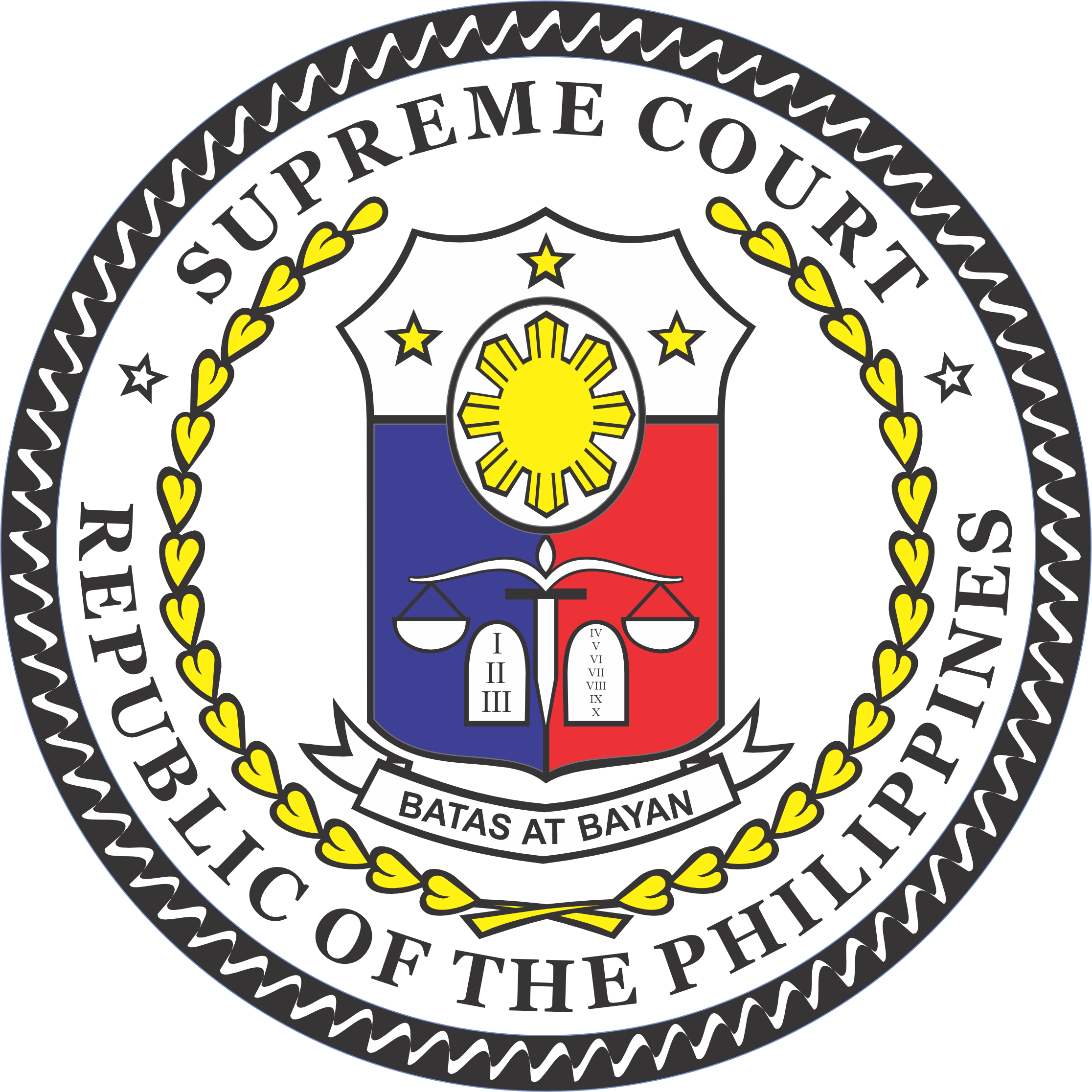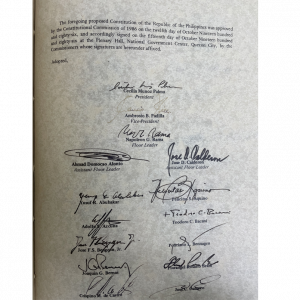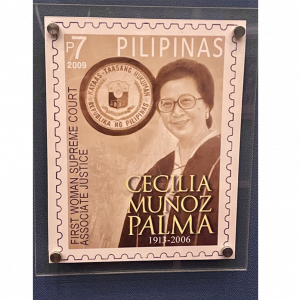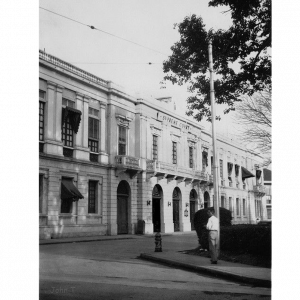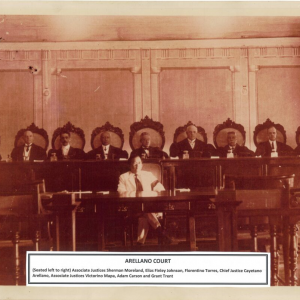One Justice Sector: A Bench and Bar Dialogue
with the
Members of the IBP – Tarlac Chapter
October 9, 2023
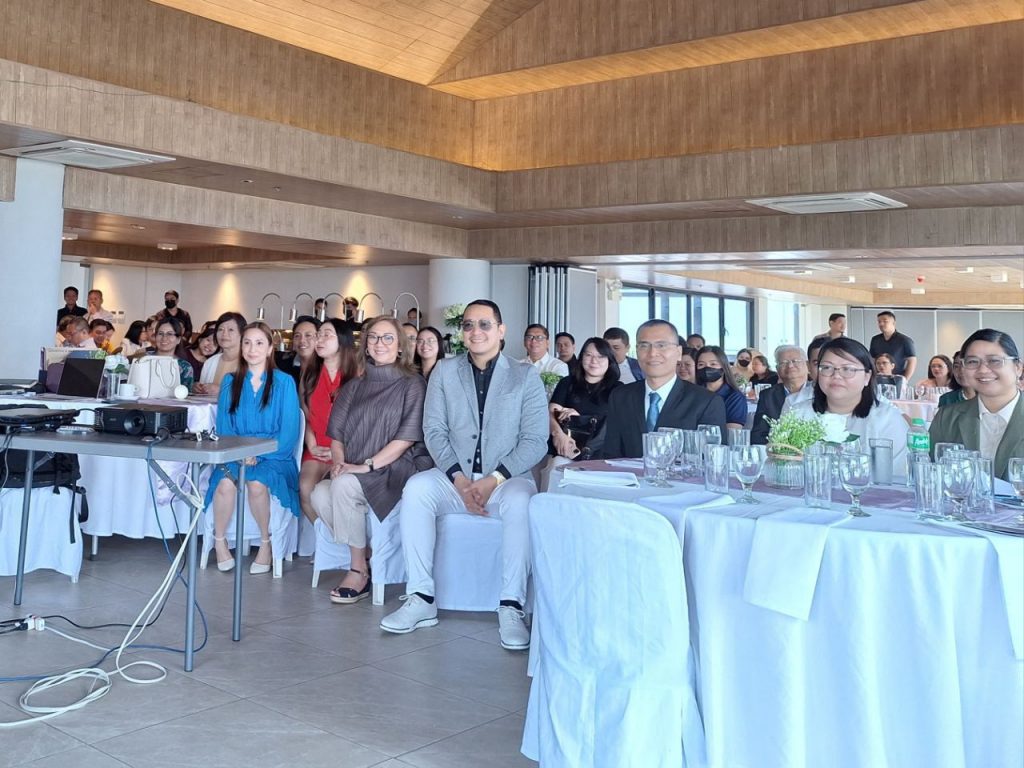
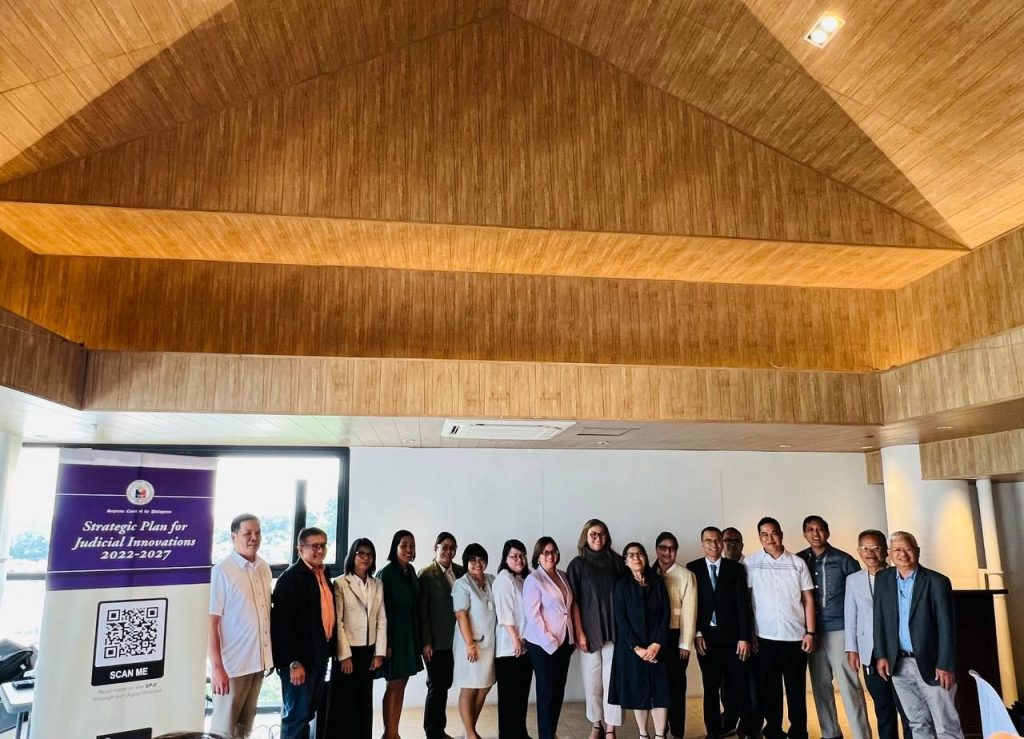
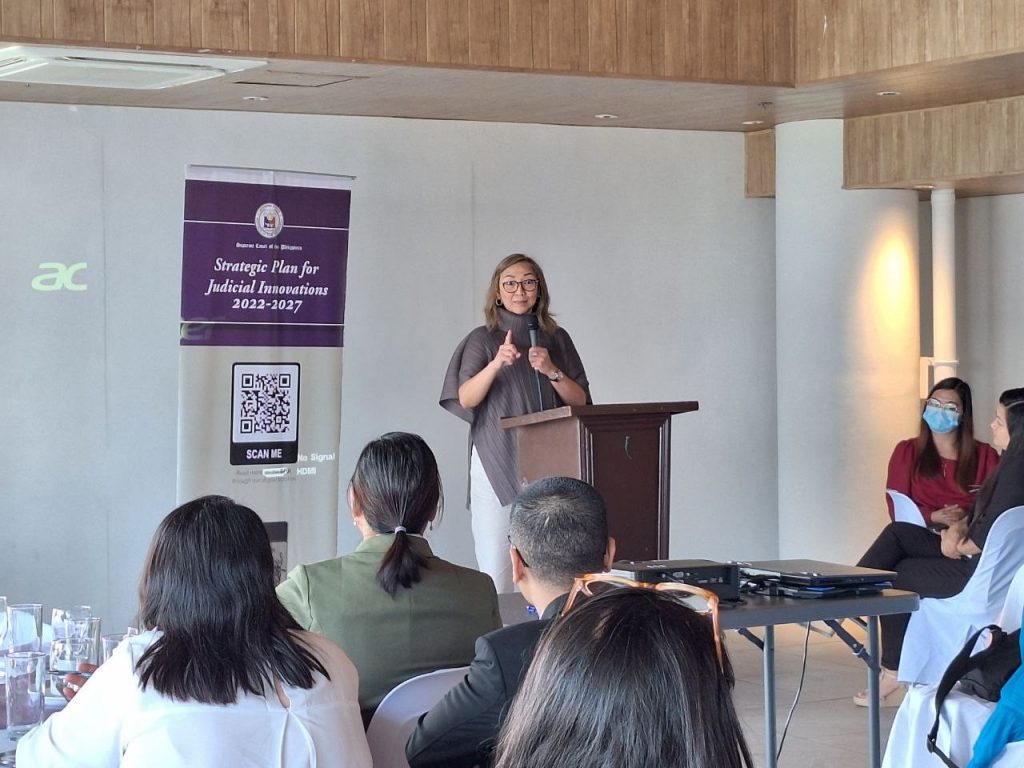
Justice Singh delivered a message emphasizing the Strategic Plan for Judicial Innovations 2022-2027 (SPJI) and highlighted the three (3) outcomes of Efficiency, Innovation, and Access.
To achieve Efficiency, the SPJI calls for a Judiciary-wide organizational review and restructuring, including all courts on all levels, and all administrative offices. Justice Singh shared with the attendees the plan to strengthen the Judiciary Health and Welfare Program for all judicial officers and court officials, as well as employees at all court levels, to cover their physical, mental and social well-being. The SPJI includes plans to establish regional mental health units for the courts. A 24/7 Mental Health Hotline is already operational.
Justice Singh also spoke of the plans to create better career opportunities for the courts’ non-legal staff. Through the creation of degree and certificate programs for non-legal staff, the courts can motivate its employees to perform at their highest level so they can qualify for higher positions in the institution.
In relation to Innovation, Justice Singh explained that this means running all court systems and processes, both adjudicative and administrative, electronically. Justice Singh acknowledged that these innovations will not happen overnight, it will take time, but there is a collective effort on the part of the government to make these plans a reality.
In particular, the Supreme Court is already evaluating the use of Artificial Intelligence or AI services to alleviate and complement the workload of the courts. Specifically, through AI- enabled legal research tools and AI-enabled voice-to-text transcription applications to support the work of court stenographers. Justice Singh informed the members of the Bar and Bench that the Court is currently working with experts to teach the AI programs to better understand local accents and intonations for more accurate transcriptions.
Lastly, Justice Singh discussed the importance of Access, that the SPJI endeavors to conduct judicial proceedings which are free from discrimination of any form, and which promote respect, sensitivity, and inclusivity across distinct genders, identities, roles, needs, and vulnerabilities.
The Court has revitalized and made mandatory the Clinical Legal Education Program in law schools across the country as part of its efforts to make legal aid more available to those most in need. In line with this, Justice Singh implored the IBP members of Tarlac to contribute their time to be law supervisors to law student practitioners in the local law schools. The Supreme Court will also soon release a National Directory of Free Legal Aid Providers, which will list down all free legal aid providers in the country including the Public Attorney’s Office, private firms, and law clinics.
Justice Singh also emphasized the strides the Supreme Court has taken in improving gender sensitivity and gender fair etiquette. The Supreme Court has already released the Guidelines for the Use of Gender Fair Language and Gender Fair Courtroom Etiquette in the Judiciary and will soon roll out an updated Gender Sensitivity Training Program. Justice Singh reminds the judges and lawyers that these new guidelines reflect the needs of our current society, and aim to raise the respectfulness and decorum in judicial proceedings.
Finally, Justice Singh requested the members of the Bench and the Bar of Tarlac to help the Supreme Court in delivering efficient, innovative, and accessible justice as envisioned in the SPJI. Justice Singh ended by reminding the participants “We are one sector. We deliver one service to the public. Justice can only be fully realized if we work hand in hand.” (Courtesy of the Office of Associate Justice Maria Filomena D. Singh)
